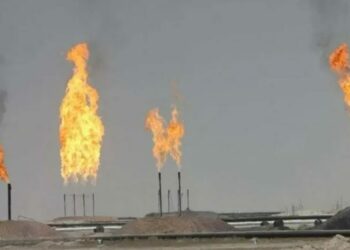Relations between Afghanistan and Pakistan have been topsy-turvy for long. Lately, once again we have been witnessing ties hitting a lower ebb. NSA Moeed Yusuf said Afghanistan was being embarrassed by idiotic statements from its senior officials who were deliberately trying to spoil its bilateral relations with Pakistan through vitriolic and delusional statements to avert attention from their own failures.
However, the security adviser reiterated that Pakistan remained committed to facilitating an inclusive political settlement in Afghanistan. He said in this spirit, Prime Minister Imran Khan agreed to meet President Ashraf Ghani recently to continue our engagement.
Pakistan has been working feverishly to broker a power-sharing arrangement so that Afghanistan does not descend yet again into civil war. Afghanistan has always been the victim of conspiracies by world powers because of its geographical location.
After 19 years of long and nerve-wracking war, the United States is convinced that it can never win the Afghan war with bullets and ammunition, so the country abandoned the use of force and tried to resolve the issue at the negotiating table. Pakistan played a significant role in bringing the Afghan Taliban and the United States to the negotiating table, and the country also stood firm in the ups and downs of the talks.
However, Afghanistan has occasionally blamed Pakistan for its negative role in the country. Mr Ghani had talked of Pakistan’s “negative role” in his country, alleging that 10,000 militants had slipped into Afghanistan from Pakistan. Separately, in another dubious claim the Afghan vice president had alleged that the PAF had provided air support to the Afghan Taliban during clashes between Kabul and the insurgents at Spin Boldak.
It is unfortunate that the Afghan president chose to air such controversial views at a multilateral gathering. Regarding Ghani’s outburst, Prime Minister Imran Khan rightly pointed out it was highly unfair of the Afghan leader to heap the blame for Afghanistan’s implosion on Pakistan.
India is trying its best to maintain tension between Pakistan and Afghanistan because if peace is established in Afghanistan or relations with Pakistan become good, then India’s influence in the region would end.
Afghan politicians must realise that Pakistan’s input in the process will be vital, even if this country’s influence over the Taliban has diminished considerably. Considering its geographical, historical and cultural proximity to Afghanistan, Pakistan cannot be left out of the Afghan equation.
Unlike in the past, the Afghan Taliban look appears to be serious and the world is ready to establish relations with the Taliban, but the Afghan government is turning its back on reality and focusing on blaming Pakistan. There is no doubt that Pakistan has always played its full role for peace in Afghanistan and has left no stone unturned in this regard.
Now it is the responsibility of the Afghan government and the Taliban to settle their internal affairs amicably and instead of further straining relations with Pakistan, they should look at one’s own shortcomings so that conspiratorial elements like India do not get a chance.



























